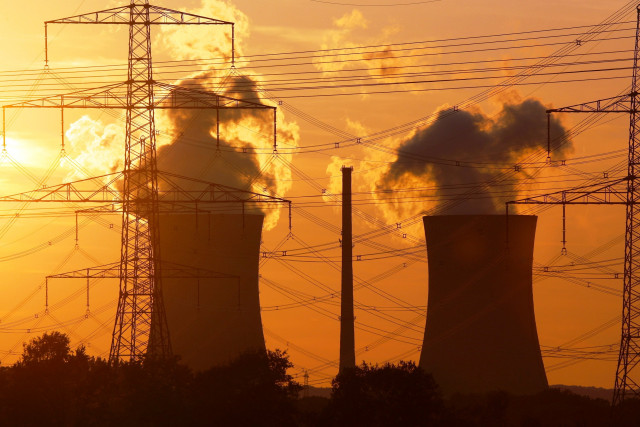US, Iran foreign ministers to hold first nuclear talks
Secretary of State John Kerry and new Iranian Foreign Minister Muhammad Javad Zarif will meet at UN headquarters.

Secretary of State John Kerry and new Iranian Foreign Minister Muhammad Javad Zarif will meet at UN headquarters. PHOTO: FILE
Secretary of State John Kerry and new Iranian Foreign Minister Muhammad Javad Zarif will join counterparts from Britain, China, France, Germany and Russia at the meeting at United Nations headquarters, US officials said Monday.
High-level contacts between Iranian and US officials have been rare since the 1979 Islamic Revolution. But in another sign of a possible thaw, the White House said it was not ruling out a meeting between President Barack Obama and new Iranian counterpart Hassan Rowhani on the sidelines of this week's UN General Assembly.
The encounter between Zarif and Kerry comes as Iran calls for the easing of crippling international sanctions over its uranium enrichment.
Rowhani said in a US television interview last week that Iran would "never" build a nuclear bomb. But the United States and its allies still believe Tehran wants that capability and are waiting for signs that Rowhani is serious about better relations.
The talks "will give our ministers a sense of their level of seriousness and whether they are coming with concrete new proposals and whether this charm offensive actually has substance to it," a senior US State Department official said.
The US-educated Zarif, whose knowledge of Western culture has endeared him to foreign diplomats, confirmed Thursday's meeting on his Facebook page.
Zarif said he spoke to EU Foreign Policy Chief Catherine Ashton of Iran's "political will as well as a conceptual framework to reach a solution that would ensure the Iranian people's rights and would lift the sanctions."
"It is evident from her post-meeting interview that she took it positively," Zarif commented on the social media site.
The United States, which has spearheaded an international drive to cut Iran's oil exports, has insisted it will not lift sanctions without progress.
Ashton, who has led Western efforts to engage with Tehran, said she was "struck by the energy and determination" of Zarif.
But "as you would appreciate, there is a huge amount of work to do," she added.
The international powers made a new proposal to Tehran this year, before Rowhani's election, believed to offer some sanctions relief in return for a scaling back of Iran's uranium enrichment.
"There's a sense that we never actually got a firm response or a detailed response to that," the US official said.
Zarif also met in New York with British Foreign Secretary William Hague, who called for Iran to take "concrete steps" to back Rowhani's calls for better ties.
"Of course we urge them firmly down that path," Hague told reporters. "We will be ready to reciprocate in many ways."
Britain suspended ties with Iran after its Tehran embassy was ransacked in 2011.
But Hague said that Britain "does not want a confrontational relationship with Iran" and was "open to better relations."
Foreign Minister Fumio Kishida of Japan, which historically has had cordial relations with Iran, also met Zarif and urged him to be "flexible" to allow for "concrete progress," a Japanese official said.
Thursday's meeting will be a milestone between the United States and Iran, which broke off diplomatic relations in 1980 after the overthrow of the late Shah and the taking of US diplomats as hostages.
In 2007, US secretary of state Condoleezza Rice met her Iranian counterpart informally at an international summit in Sharm El-Sheikh, Egypt.
Her predecessor, Colin Powell, met Iran's foreign minister at the same venue in 2004. But no Iranian minister has taken part in ministerial meetings of the major powers trying to persuade Iran to halt its nuclear drive.
Ben Rhodes, a deputy US national security adviser, told reporters that while Obama was not scheduled to meet with Rowhani, it could not be ruled out.
"We are open to engagement with the Iranian government on a variety of levels provided that they will follow through on their commitment to address the international community's concern on their nuclear program," he said.
In an opinion piece in Britain's Guardian newspaper, former Iranian president Mohammad Khatami warned against letting diplomacy fail, singling out Israel for "a campaign to discredit" Rowhani who he said enjoyed the "explicit support" of Iran's supreme leader.
"Failure now to create an atmosphere of trust and meaningful dialogue will only boost extremist forces on all sides," Khatami wrote.
Israeli Prime Minister Benjamin Netanyahu has criticized overtures to Rowhani, calling him a "wolf in sheep's clothing" and urging no let-up in pressure.
Rowhani will address the General Assembly on Tuesday after meeting French President Francois Hollande.



















COMMENTS
Comments are moderated and generally will be posted if they are on-topic and not abusive.
For more information, please see our Comments FAQ